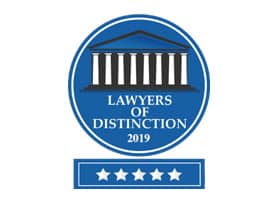Negligence vs. Strict Liability | What’s the Difference?
 Most personal injury claims are based on a legal theory of negligence. To prove negligence, you must show that the defendant failed to act as a reasonable person would, and that their failure led to an accident that caused you to suffer actual losses. Under the law, certain activities are considered to be so inherently dangerous that anyone engaging in those activities assumes potential liability for any resulting injuries. The principle of “strict liability” applies to cases involving injuries caused by such dangerous activities. The activities covered by strict liability are specified in a state statute.
Most personal injury claims are based on a legal theory of negligence. To prove negligence, you must show that the defendant failed to act as a reasonable person would, and that their failure led to an accident that caused you to suffer actual losses. Under the law, certain activities are considered to be so inherently dangerous that anyone engaging in those activities assumes potential liability for any resulting injuries. The principle of “strict liability” applies to cases involving injuries caused by such dangerous activities. The activities covered by strict liability are specified in a state statute.
In strict liability cases, you don’t have to prove negligence, i.e., that the defendant’s actions were unreasonable. You need only show that the defendant engaged in a type of activity covered by the state strict liability statute and that you suffered injury as a result.
The following are among the actions to which strict liability applies:
- Use and sale of fireworks
- Harboring a vicious animal, including a dog—New Jersey takes a strict liability approach to dog bites. In New Jersey, an owner may be liable if their dog bites someone, even if the dog was not known to be vicious.
- Claims involving certain dangerous products
Contact Howard D. Popper, P.C.
At Howard D. Popper, P.C., we can help protect your rights. For a free initial consultation to discuss your options after a work-related motor vehicle accident, contact our office online or call 973-993-8787 to set up an appointment. We have offices in Morristown and Newton. Currently, all our client communications are by phone, text message, or videoconference.
We handle all personal injury claims on a contingent-fee basis. You won’t pay any attorney fees unless we recover damages for your losses.













